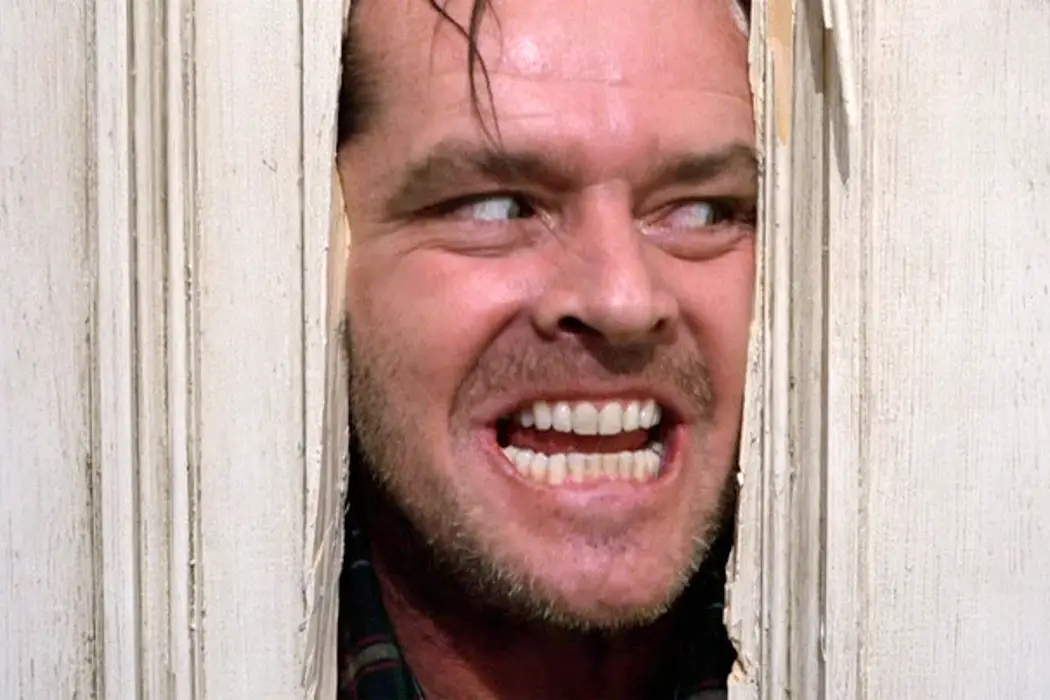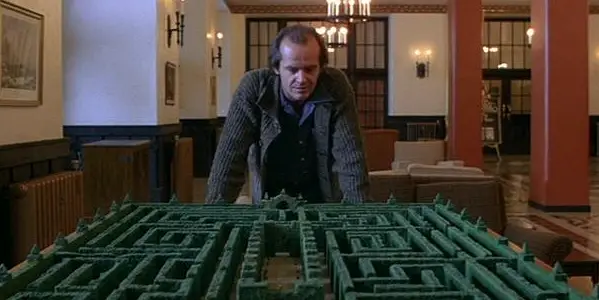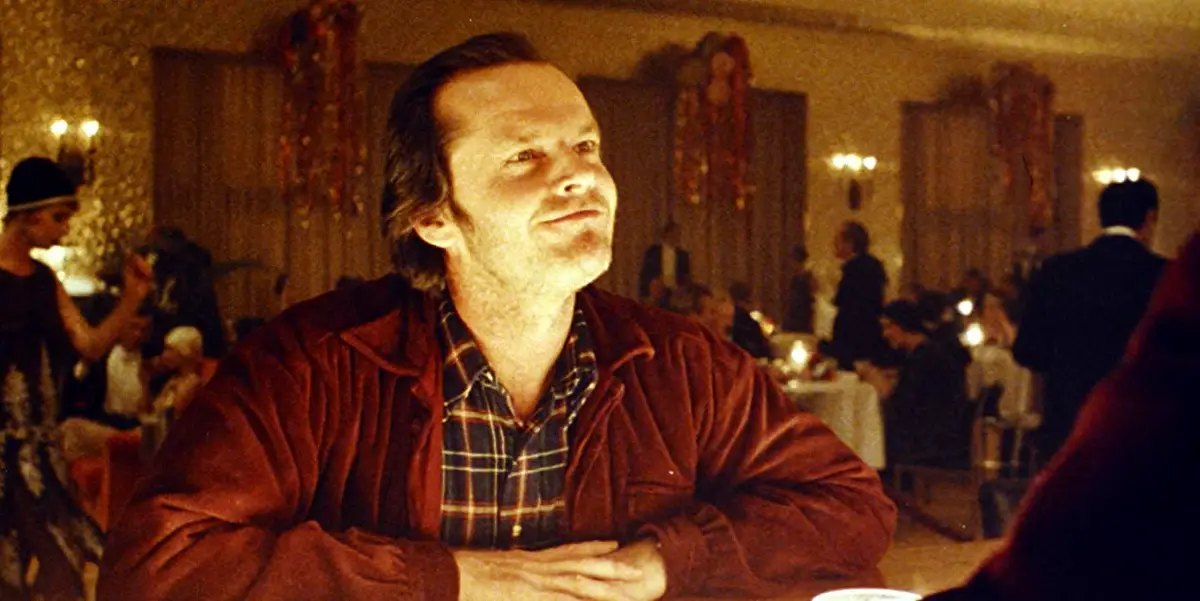Why Did My Mother Like THE SHINING?

Frank H. Wu is William L. Prosser Distinguished Professor at…
I never knew my late mother very well. But among the most important insights I ever had into her perspective on the world came from watching The Shining together on television. That was back in the day when you could catch a movie in theaters, when it was rereleased as Disney did, or, if you were lucky and paid attention to the listings, on the small screen, broadcast with edits and often a warning about the content — Betamax was losing to VHS tapes among early adopters; cable was brand new and my parents were too frugal to indulge in such frivolity. No doubt my mother missed the “viewer’s discretion” alert, because she was strict about her children, and I was not allowed to see an R rated movie during the time I lived at home.

Since then, I have seen the movie more or less as it was intended to be shown, as it has multiple versions. Based on a Stephen King novel albeit not to his liking, directed by Stanley Kubrick with his characteristic obsessiveness, and starring Jack Nicholson and Shelley Duvall, this is psychological horror with an emphasis on how the former generates the latter. Nicholson plays Jack Torrance, an aspiring writer already blocked, and Duvall his loyal wife, Wendy; Danny Lloyd is their young son, Danny. Scatman Crothers also appears, as Dick Halloran, the chef who departs with the off-season.
Should We Worry About Writer’s Block?
The premise is simple, as the best premises are. Jack agrees to be the winter caretaker of the Overlook Hotel, located in the Rockies atop a Native American burial site. An unhappy fate befell the prior holder of that job. For reasons that were not determined, that individual murdered his family in the isolated setting, before committing suicide.
Jack and his family have the run of the place. The arrangement seems perfect for a creative individual who must pay the bills and provide for loved ones. Yet there would be no story if he finished his novel while snowed in, the trio emerging none the worse for wear from their adventure in the mountains.
Soon enough, Jack starts to become frustrated with himself. He hangs out in the grand ballroom, chatting it up with Lloyd the bartender, who is (and always has been, a temporal reference that is telling) about as ideal as a fellow serving drinks to another fellow could be, not only listening well but also offering anecdotes about the past glories of the resort — except the guy doesn’t exist, or at least not in any normal sense. Meanwhile, Wendy explores the immense hedge maze on the grounds. Danny, peddling his trike along the deserted corridors meets two girls, twins lifted from a Diane Arbus photo, whom the youngster is too guileless to regard as creepy.
The child possesses “the shining.” It refers to a talent for supernatural visions. Halloran recognizes it immediately, because he, too, has the gift. The only cliché of The Shining is the warning from Halloran to Danny to avoid Room 237. That means, of course, that curiosity compels him to check out what is there.

Madness overwhelms as Jack is discovered by Wendy to have been typing nothing but the phrase “All work and no play make Jack a dull boy” over and over and over on the blank pages that have amassed in a stack as if he has had a breakthrough. Although Jack was overbearing and appeared to be ready to explode into rage from early on, he becomes a caricature of domestic violence in stalking his wife and their child, a gleam in his eye. Their faces, so distinctive, are distorted, he frothing through the rictus of a grin, she sobbing with dripping snot. Nicholson had won an Oscar for One Flew Over the Cuckoo’s Nest, establishing him as a star identified with mental illness.
Jack is armed with an ax. Wendy defends herself with a baseball bat. Nicholson improvised the line, “Here’s Johnny.” Duvall had a real breakdown, her hair falling out, because of the unceasing takes, running up to a record-setting 127 for one scene.
What Is It with Redrum?
The remainder of this appreciation is for people who have already seen the movie, because there are spoilers. The open secret of horror movies is that they are all about anticipation. Foreboding exceeds any disaster, for those who are merely watching and not facing execution. In this case, the ambiguous ending shows Jack both frozen to death in the shrubbery of the hedge maze, with an indelible smirk, and posing in a black and white still photo of a group scene of partygoers from the heyday of the destination. In each tableaux, he belongs.
You can see why in Western art a full-toothed open-mouth smile was regarded until recently not as an indication of happiness but insanity. You are invited to wonder whether a person can be redeemed by being removed from the wrong time and the wrong place. (Kubrick cut an epilogue after the release, in which Wendy is told by investigators that they detected nothing unusual when they were called in.)

The Shining is another Kubrick masterpiece. There are continuity errors that must be deliberate clues, but what is obscure is what mystery they offer the solution to. Conspiracy theorists claim this is the director’s coded confession for faking the footage of the Apollo moon landings. With the symbolism of mirrors and doubles, it is as open to interpretation as his 2001: A Space Odyssey (1968). His hand is evident if you watch for it, in the editing especially, right down to the noise of Danny traveling on his vehicle, a child’s toy, across carpet and then hardwood, alternating with that mesmerizing syncopation of a new adult technology to record the movement.
The Shining was an early example of the Steadicam in action, allowing a fluidity of motion in the tracking shots we have taken for granted with digital image stabilization in consumer-level gadgets. Fans have analyzed every aspect of the movie, from the Playgirl magazine that Jack is browsing through in the opening to the impossibility of the floor plan of the resort. It has had cultural influence beyond what typically is allowed a genre flick: for example, sci-fi Passengers (2016) paid homage to Lloyd with an animatronic bartender in the same outfit. The young actor who played Danny was not aware of the dread mood of the script, and that experience was his sole movie credit, prompting various rumors about his demise. (He grew up to be a farmer and a teacher.)
The movie has been compromised by its own success. It is quoted so much that it is losing its power. King was involved with a remake that was more true to his novel. It did not fare as well, an indication that Kubrick had distilled the essence of the plot.
Are Our Mothers Right After All?
The Shining will always be part of my formative years. As the credits rolled, my mother and I had a rare conversation. I was scared, as a kid likely would be; so perhaps my mother was not wrong to shield me, a sensitive adolescent, from movies that could have been traumatic. She said, however, that the death of the main character was the right outcome. She explained that because of what he had done, it would have been wrong otherwise.
To my recollection, my mother had not be explicit about right and wrong on any other occasion; I could infer the lines only from what I was disciplined for. I am not sure if my mother was Christian. An immigrant from China via Taiwan, she had a Chinese-language Bible hidden in a drawer and had given herself the English name of “Grace,” which would seem to be signs of conversion. She attended the Bible study group run by the lady who lived next door on our dirt road beyond the edge of the suburbs, but I assumed that was to be a good neighbor. In any event, the comment about The Shining remains in my memory as one of the very few expressions of her life philosophy.
Now that I am much older than my mother was at that time, I am not sure I agree with her. Yet I have inherited what possibly we all share as members of civilized society. I care about right and wrong.
When I leave the theatre, including the live stage and the cinema, I ask: what was the moral? I do not mean religiously or within any ideology, but instead what point was expressed within the imagined scenario as well as our reality? The Shining presents that question of meaning. It offers no easy answer.
Is The Shining right in its ending? Or does it not matter whether a movie ends on a just outcome?
Does content like this matter to you?
Become a Member and support film journalism. Unlock access to all of Film Inquiry`s great articles. Join a community of like-minded readers who are passionate about cinema - get access to our private members Network, give back to independent filmmakers, and more.
Frank H. Wu is William L. Prosser Distinguished Professor at University of California Hastings College of the Law, where he has taught on film and law; he previously served as Chancellor & Dean at the institution. He has been published everywhere from the New York Times and Washington Post to the Chronicle of Higher Education and National Law Journal to Huffington Post, and he writes regularly about photography for 35mmc. He is a fan especially of 1970s paranoid thrillers.













